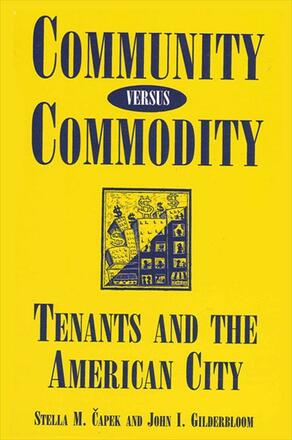
Community versus Commodity
Tenants and the American City
Alternative formats available from:
Stella M. Capek is Assistant Professor of Sociology at Hendrix College. John I. Gilderbloom is Associate Professor of Urban Policy at the University of Louisville and is the author of Rent Control: A Source Book and Rethinking Rental Housing.
Reviews
"This is a significant contribution to the literature of rental housing and of tenants as a social group. A major portion of the book is a comparison between Santa Monica where a 'rainbow coalition' of renters, seniors, environmentalists, and liberals put together an extraordinarily progressive government, and its free-enterprise antithesis, Houston. Santa Monica's success in coalition politics led to a strong rent control law, affordable housing, low density development, and homeless shelters. By contrast, America's least regulated city, Houston, suffers from deplorable low-income housing and a host of other unaddressed urban problems. The contrast is drawn in a riveting and absorbing piece of writing." — Norman Krumholz, former President, American Planning Association
"Capek and Gilderbloom advance considerably our understanding of the housing movement in the United States and its transformative potential. This is a strong theoretical contribution and an illuminating case study." — Chester Hartman, Institute for Policy Studies, Washington, DC
"This articulate, provocative, and often controversial book merits the attention of readers across the nation, both those in government and the academy. Capek and Gilderbloom's extensive data and wise suggestions about tenants' organizations, community-based housing, and democratic housing cooperatives offer the basis for new grass-roots and federal policy initiatives to solve the ongoing housing emergency." — Joe Feagin, author of The Urban Real Estate Game
"Stella M. Capek and John I. Gilderbloom's Community versus Commodity is a pioneering work in the several fields of urban studies, social movement theory, political ethnography, and urban politics. More than pathbreaking interdisciplinary research, Community versus Commodity also highlights questions of political meaning and American public values at the center of American politics in the 1990s. It is a call to ask what America stands for." — Harry C. Boyte, Hubert H. Humphrey Institute of Public Affairs, University of Minnesota